India: UNODC and partners champion change in prison healthcare systems, launch innovative toolkit for officials and inmates
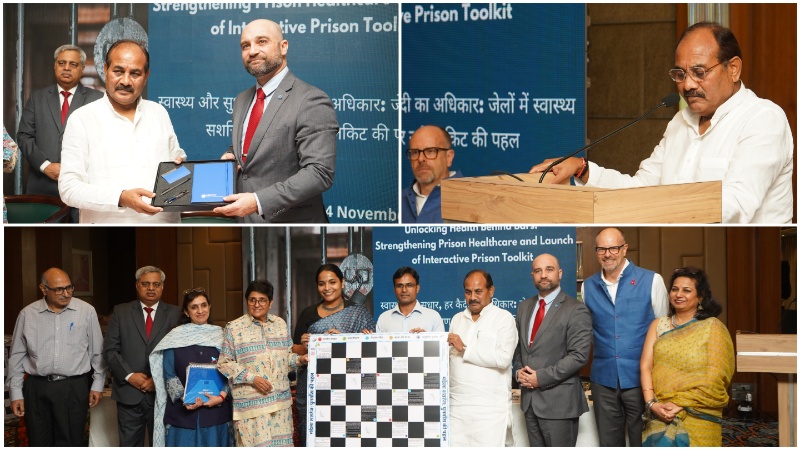
Lucknow, Uttar Pradesh, India/14 November 2024: Healthcare in prisons is not merely about providing essential services to inmates; it is a matter of public health and social justice. Prisons are microcosms of society, housing vulnerable populations with limited access to resources. Overcrowding, poor sanitation, and limited healthcare facilities make them breeding grounds for infectious diseases like tuberculosis, HIV, and hepatitis. Effective prison healthcare not only improves the lives of inmates but also safeguards public health when they reintegrate into society.
Recognizing this critical need, UNODC--in collaboration with the India Vision Foundation and the Uttar Pradesh Prison Department--hosted officials from 76 prisons across the state at a transformative consultation on enhancing prison healthcare, tackle infectious diseases and addressing mental health and substance abuse challenges through innovative strategies and tools. Through intensive and hands-on discussions, prison administrators, healthcare providers, and policymakers exchanged insights, experiences and actionable solutions.
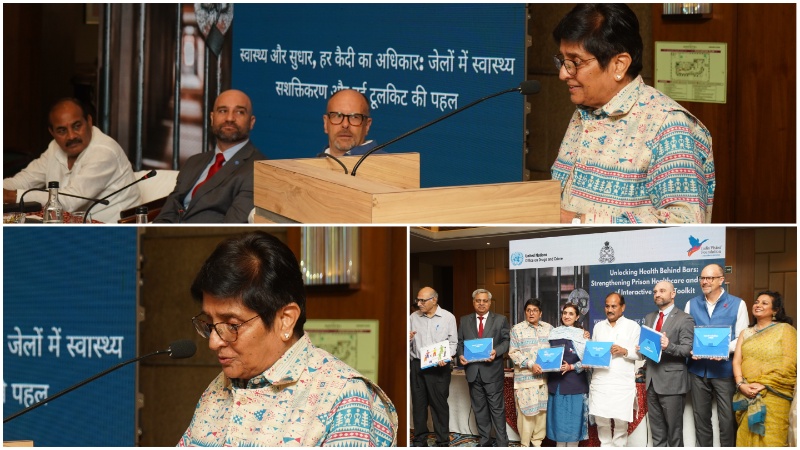
Highlighting the pivotal role of sanitation in improving inmate well-being, Minister of Prisons, Government of Uttar Pradesh Mr. Dara Singh Chauhan highlighted the initiatives led by authorities to improve the mental and physical health of prisoners. He mentioned that the real example of the Prime Minister’s Swachh Bharat Abhiyan is visible in the prisons, where high standards of cleanliness are being maintained. He also emphasized that ensuring the acceptance of prisoners by society is crucial for their rehabilitation and reintegration into the mainstream.
Former Lieutenant Governor of Puducherry and Founder of the India Vision Foundation Dr. Kiran Bedi stressed the broader implications of such reforms. “This initiative isn’t just about health—it’s about holistic well-being aligned with international standards. By promoting education, skills, and accountability, we can build a model of restorative justice rooted in collective responsibility,” said Dr. Bedi.
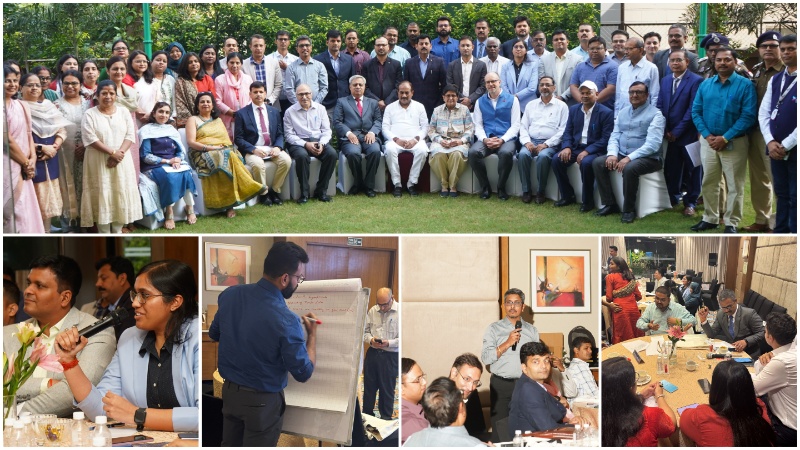
Uttar Pradesh’s Director General of Prisons, Mr. P.V. Rama Sastry, welcomed the collaborative efforts. “This conference has not only highlighted pressing challenges but also provided a roadmap for reform. Initiatives like health ATMs, digital libraries, and training prison health workers are already making a difference,” said Mr. Sastry. He added that the prison department has initiated several initiatives in collaboration with various NGOs, such as prison radio, which provides inmates with a creative and positive environment. Through the digital library, inmates are being provided with educational materials and motivational books. ICTC centers are being utilized for the early detection of HIV/AIDS, TB, and STIs.
A highlight of the event was the unveiling of an Interactive Prison Toolkit, an innovative resource designed to educate prison staff on the United Nations’ Nelson Mandela Rules, which advocate for healthcare in prisons equivalent to that available in the community. The toolkit includes a peer guide and board games to raise awareness on the Mandela Rules, as well as on substance use and HIV prevention. UNODC’s Criminal Justice Expert Ms. Seema Joshi Arya emphasized that the toolkit is a practical step toward ensuring universal healthcare access for inmates.

UNODC Regional Representative Marco Teixeira underscored the global significance of the initiative. “Prison health is intrinsically linked to public health. Many inmates return to their communities. Without proper care, they risk spreading diseases, perpetuating mental health issues, and succumbing to substance abuse. By prioritizing prison healthcare, we uphold public health and social responsibility.”
Participants also appreciated the role of creative tools such as chess to train prison staff on substance use awareness. UNAIDS India Director Dr. David Bridger emphasized the importance of safe spaces in prisons for effective HIV prevention and treatment, further bridging the gap between health services and vulnerable populations.
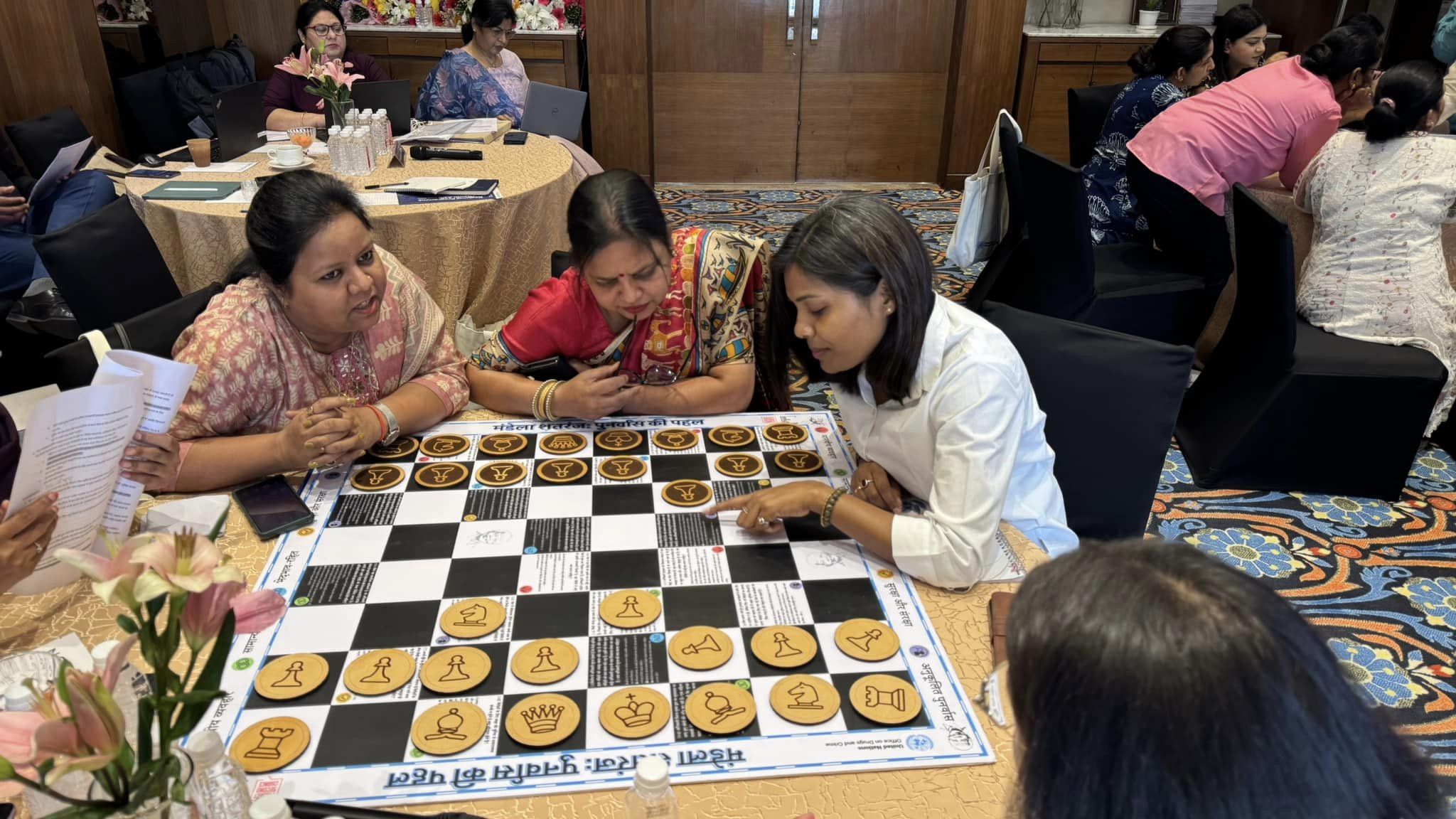
The consultation also had a dedicated session addressing the unique health challenges faced by women, including reproductive health, maternal care, and mental health support, in line with the Bangkok Rules. Participants engaged in a practical session featuring case studies and role-play exercises, led by prison staff. This hands-on approach highlighted real-life challenges and solutions for managing mental health crises in correctional facilities.
The two-day consultation concluded with a resounding call to action: to replicate these innovations across all prisons in Uttar Pradesh and beyond. Policymakers and participants committed to disseminating the knowledge gained and implementing reforms at scale.
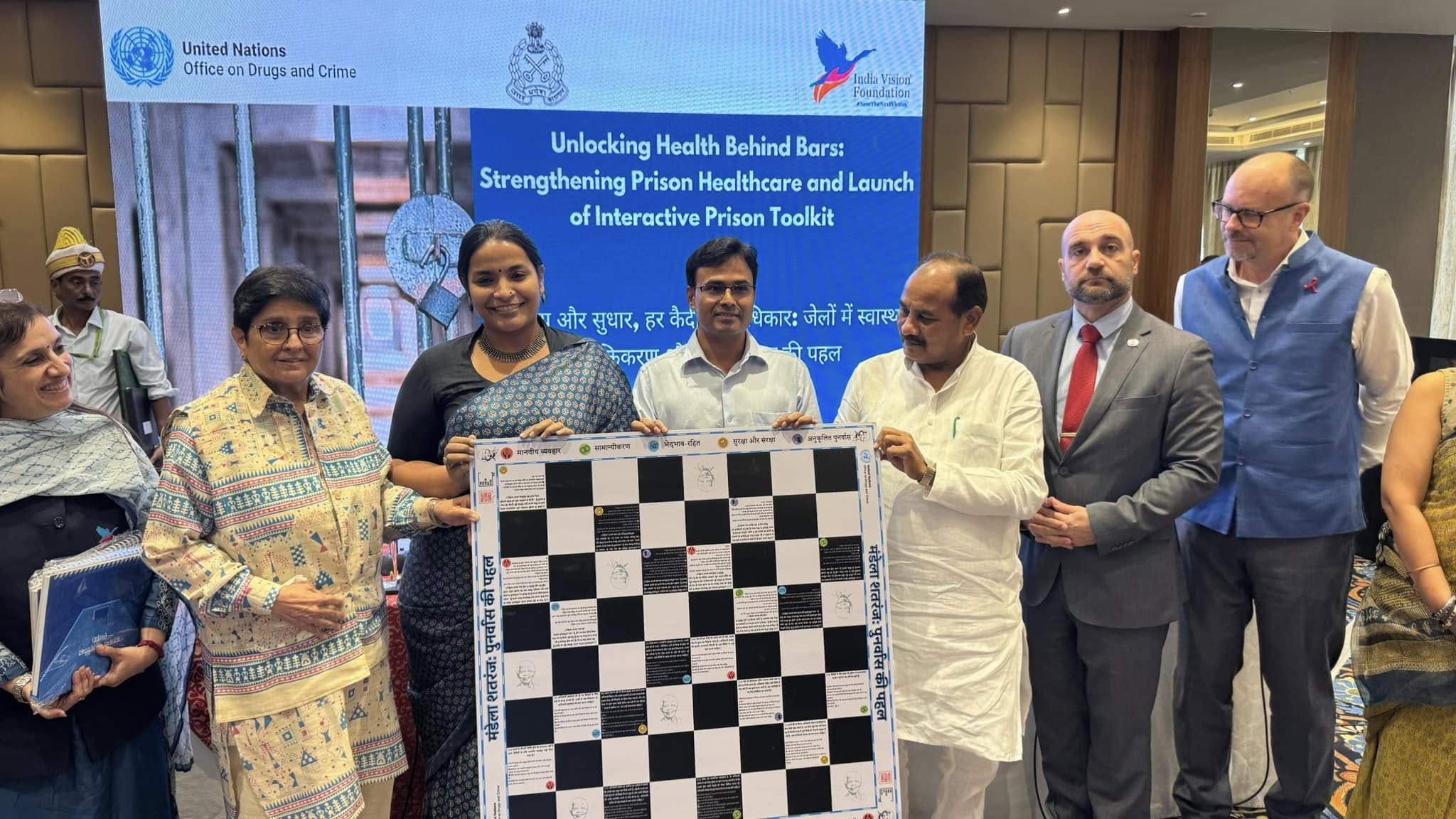
Improving prison healthcare is a human rights imperative and a collective responsibility. It ensures that every inmate, regardless of their circumstances, has the opportunity to heal and contribute to society’s greater good. Investing in prison healthcare is an investment in public health, safety, and social progress.
This activity contributes to SDG 3, SDG 5, SDG 16 and SDG 17: https://sdg-tracker.org/